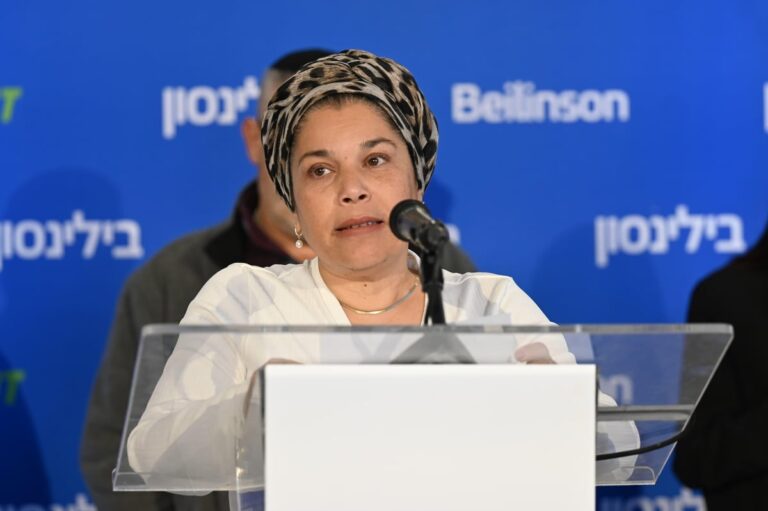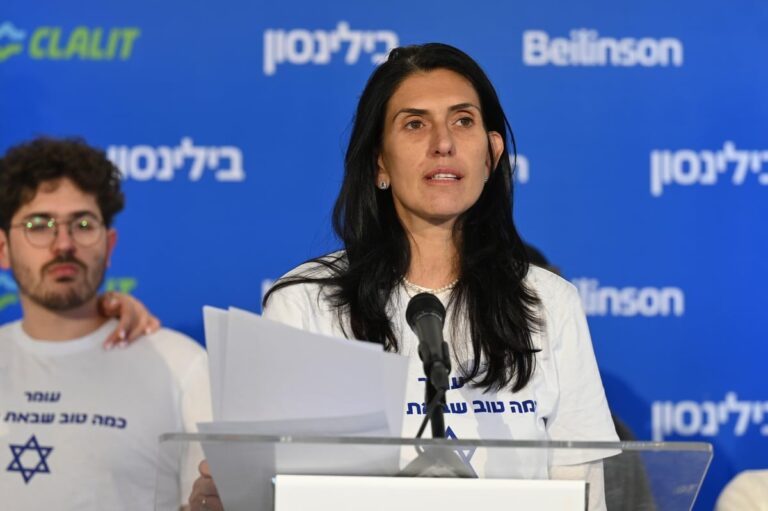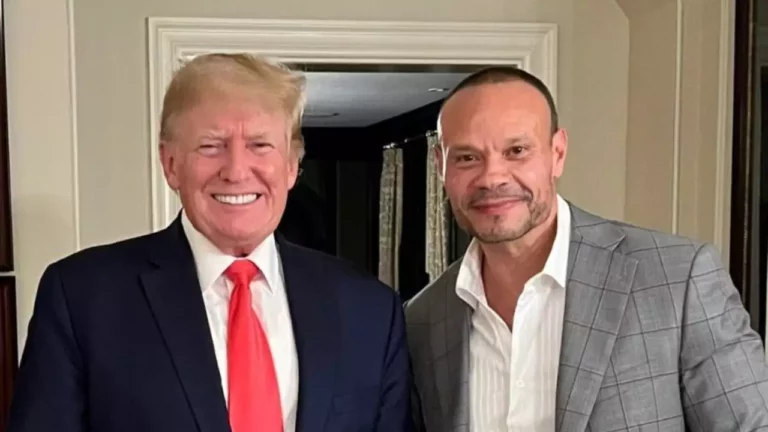 It is the night of Tishah B’av, and I am sitting in my dorm room in one of Columbia University’s residential halls. Looking out the window, I see lights, and a myriad of buildings that all characterize our century. But one thing I can’t see in my mind’s eye, and that I can’t feel is the destruction of the two Temples. Perhaps the barrier is temporal because it happened so long ago. Perhaps it’s special because I don’t live in Israel. Perhaps it’s spiritual because I am a newcomer to orthodoxy Judaism. I begin to conjure up thoughts to produce the aforementioned feeling of nostalgia, but it doesn’t work. And then, I think of the fact that so many Jews are robbed of a Torah education, and a tear begins to shape itself in the corner of my eye.
It is the night of Tishah B’av, and I am sitting in my dorm room in one of Columbia University’s residential halls. Looking out the window, I see lights, and a myriad of buildings that all characterize our century. But one thing I can’t see in my mind’s eye, and that I can’t feel is the destruction of the two Temples. Perhaps the barrier is temporal because it happened so long ago. Perhaps it’s special because I don’t live in Israel. Perhaps it’s spiritual because I am a newcomer to orthodoxy Judaism. I begin to conjure up thoughts to produce the aforementioned feeling of nostalgia, but it doesn’t work. And then, I think of the fact that so many Jews are robbed of a Torah education, and a tear begins to shape itself in the corner of my eye.
My parents were raised in Communist Russia, a place in which a man wearing a yarmulke could be shot on the street and never seen by his parents again. Orthodoxy Judaism was forbidden, and its practice was a disgrace. Instead of bowing down to Hashem, the Russian Jews bowed down to the idols of jealousy and anger erected by the government. Instead of singing the Shema, the Russian Jews sang songs to glorify the leader at the time. Their reading, evening, morning, and afternoon, consisted of the Communist newspaper, Pravda, meaning, “truth” in Russian, when they should have been reading the real truth, the Torah. Perhaps there were a couple of people who resisted the brainwashing, but they were derided. For the average person at the time, Orthodoxy Jews were people who thwarted all education. They were uncultured people who were not conducive to the nation’s progress. However, what the average person did not know was that many of our sages held high and respected offices in the palaces of kings. Examples include Reb Moshe Hamon, who was a physician for a Turkish sultan, and of course, Rambam, who served as a physician to the sultan of Egypt. Moreover, education does not always entail knowledge. For instance, let us consider the Enlightenment, the age of ‘reason..’ Somewhere between 1751 and 1766, Diderot completed his Encyclopedie in an attempt “to change the way people think.” Though the Enlightenment was initiated in France, the movement found its locus in Germany. However, if one were to read Kant, Hegel, Nietzsche, etc, one could trace a genealogy that leads right up to the rise of Nazism. The writings of the ‘Enlightenment’ made Nazism not only possible, but inevitable. So, now, we return to our question, “why be frum?”
Germany, the ‘enlightened’ nation has initiated a holocaust in attempt to obliterate us from the face of the earth. Yet, there is another Hitler that is exterminating us all over the world, and this fuhrer’s name is “Intermarriage.” Consider a story from the Talmud: there once lived a man whose weakness was women. One day, he heard of a beautiful courtesan in another city, and set out to see her. When he arrived at her door, he gaped in wonder. Her beauty was ineffable. He came in and saw seven beds, one higher than the other. The first six were made of silver, and the seventh was made of gold. He climbed up the beds, reached the seventh, and was preparing to lie down when suddenly, his tzitzit slapped him on the face. He immediately ran down to the surprise of the courtesan. “By Rome, I swear that no man has every rejected me. What blemish did you find in me?” she said. “And I promise by the Temple that I have never seen anyone more beautiful than you are. But my tzitzit have just reminded me not to stray after my heart” said the man. In consequence, being frum does not only mean following the laws, it means preserving one’s heritage. If one can teach his children to wear tzitzit, he can be sure that ten generations later, his children will still be Jewish, and will not intermarry. The tzitzit will teach the males not to follow their hearts, and not to look at women of other religions.
An examination of our laws would reveal that our religion is based on kindness. For instance, we keep kosher because the animal is killed in the most painless way and because of the ensuing meticulousness with which its blood is drained. We cover the challah so as to prevent it from feeling embarrassed because we bless the wine before the challah. Our Torah begins with the letter “beis” and ends in “lamed.” Putting these two letters together, we get “lev,” or “heart.” Thus, in writing the Torah, G-d wanted us to develop a compassionate heart. In concomitance with this fact, the Torah begins and ends with kindness. In Genesis, G-d makes clothes for Adam and Eve, and in Deuteronomy, G-d buries Moshe Rabbenu. It is also important to note that both of these acts of kindness are directed toward humans. Often, however, Hashem does not readily grant our requests, and the following story will illustrate why: There once lived a king who had two daughters. One was impertinent and selfish, and the other was soft-spoken, considerate, and modest, and kind. Whenever the impertinent daughter wanted something, the king always told his servants to attend to her before she came to him to ask for it. He didn’t even want to hear her voice. On the other hand, whenever his second daughter wanted something, the king would hesitate to grant it to her. He wanted her to come and ask him for it personally in her sweet voice, and often, she had to come many times! G-d is the king, and we are the sweet daughter. Therefore, if He ever hesitates to respond to our prayers, it is only because He wants to hear them again. You might ask why G-d needs our prayers, and why He needs our mitzvoth, and why, in Genesis, did the grass sprout only after the creation of Adam? It is because through avodah and mitzvot, we develop a relationship with Him, and it is this relationship He wants. Thus, the harder the religion is to practice, the deeper the relationship with G-d becomes. Another question that hovered in my mind as I was becoming frum concerns the authenticity and validity of the Torah. How do we know it is really the truth? Aside from the fact that there was no other prophet to contradict Moshe Rabbenu, Judaism is the only religion that was given in public. All the other religions (including Islam) were given in private to one person (Rabbi Yossi Mizrachi in his lecture, “Finding Your Soulmate”). We stood near Mt. Sinai as a nation when G-d gave us the 613 commandments. They were revealed to everyone in the same way.
I have once observed that there is a striking similarity between the words, “Tishah B’av” and “teshuvah,” but the reason for the connection never occurred to me until I heard a lecture by Rebbetzin Jungreis. According to the Rebbetzin, the first time the Hebrew letter “t” is seen in the Torah is in Genesis in the word, “tov,” meaning “good” when G-d says, “And it was good.” Suddenly, the connection became clear! If we do teshuvah and if we rebuild the beis-ha-mikdash in our souls and homes, Tishah B’av will someday become a good day. It’s all up to us! I wish success in their Perestroika (Restructuring).
Diana Dreyer
[email protected]











19 Responses
What connection does this have with anything?
what a topic
Thank you for including this piece, beautiful, hearttzig, and stirring.
Awesome. Ashreinu Ma Tov Chelkainu. So many beautiful Neshamos returning to the fold.
noitallmr – isn’t it possible to appreciate it for what it is? We should all be rejoicing! Why should we always read bad news – here is good news! Here is news about a Jewish soul that has returned! And on top of that, she expresses himself so eloquently! In our day and age when assimilation is the new genocide, doesn’t it give you simcha to know that this yid – a yid from Russia – a yid that was brainwashed from his youth by the Soviet Government – isn’t it something worth rejoicing for that she has returned? That she thinks these thoughts? That she is willing to share them with us?
So you asked – “what connection does this have with anything?” Her return, her commitment, and the return and committment of so many others like her are a sure sign that our Temple will be rebuilt. May it be soon and in our day!
It’s hard to form a good reply when the writers level is so unclear. On one hand she sheds tears (!) over jews not having a torah education while she’s not sure “Why be frum”.
If your seeking solid evedance to the torah it’s available by the hundreds. The fact it’s dificult for some of us to shed tears over the Temple just shows how much more there is to cry about…
noitallmr
if u dont have anything intelligent to say dont show your ignorance
“What connection does this have with anything?”
Timeless!!
The fact that someone could ask “What connection does this have with anything?” is the connection itself!
Every day we read about tragedies that are happening all around us. The greatest tragedy of all is that these stories appeal to the human mind more than stories of hope, faith, and reassurance (such as this one).
When we hear of a tragedy we are supposed to ask ourselves “why was I unfortunate enough to hear such bad news?” and we are supposed to stir something inside us to want to change for the better.
The tragedy here is that we are living in a world where if we learn that something happened to one person physically(chas v’sholem, no-one should experience any suffering and Mashiach should come soon in our days) we are more troubled than when we hear that there are millions of people who are not frum and that the generations of people that will come from them will not be frum…it doesn’t affect us as much.
THAT IS TRUE TRAGEDY!
LIFE IS FLEETING!
DEATH IS ETERNAL!
Lets wake ourselves up and hopefully Hashem will see the millions as though they are the first daughter in the story and take care of them before they ask. As for the rest of us…we will have to come before the allmighty ourselves, over and over again out of his own mercy.
I would bet that noitallmr didn’t read the article and if he/she did was unable to comprehend it.
Maybe we could say the following. Tishah B’av spells ‘Toshuv Milaiv’. ‘Toshuv’ is spelled tof, shin, vov (hey plus aleph), bais. There’s an eye’in and bais left which is equal to 72. ‘Milaiv’ (from the heart) spelled mem, lamed, bais is equal to 72. So we have ‘Toshuv Milaiv’, ‘return from the heart’, that’s what Hashem wants.
I see they’re still teaching Contemporary Civilization at Alma Mater (oh, how I hated that course!!).
Diana, your words are clearly from the heart. I wish you continued success in your spiritual growth.
…from a fellow Columbian (’71E, ’73 & ’77 GSAS), although it was a long time ago, and the place has changed.
LOVINGLY HEARTFELT STORY, WE COULD ALL BE LEARNING FRUM THIS
With a Torah Hashkofo like that,she can be a perfect mother to future gedolei Yisroel.It should be published in the Yated,Hamodia,(maybe-)Jewsih Press,Jewish Observer,etc.This article is a valuable lesson for us all.Torah wants us to be positive,even when challenged.Everything is min-HASHEM. If I get hurt,lose a friend,get annoyed by a nasty person,hurt my figer,win the lottery (I wish) wake up in the morning..,,,etc..IT IS ALL FROM HASHEM> when Moshiach comes May he come soon) we will say Hatov ve’ha Mativ,for all special occurances,no more Dayan Ho Emess..
and,to the others who criticize the article that the young lady wrote,Please read it thoroughly so you understand it and if you had been at the Chofetz Chaim Yisha b’Av special lecture,you would not say what you did.
Woa- BROTHERJOE, amhaaretz…
I was mearly refering to the photo of the Chassid at the Kosel…Please take a chill-pill…Of course the article has a connection!!!!!
p.s Time to exercise “Don Lecaf Zechus” I think…
Attn: noitallmr
“p.s Time to exercise “Don Lecaf Zechus” I think…”
wat about ur comment “amhaaretz..” ?
efshar its shayech to dan lkaf zchus, wut?
Beautiful writing!
ZAYER SHAIN,
agav- shouldn’t it be titled the reason to be frum,
rather than a title that imposes the alternative?
(as mdshreks mistakenly commented)
Really good point “wrybouturself”….Maybe you shud be don lecaf zchus that i was don HIM lecaf zechus!!!!!